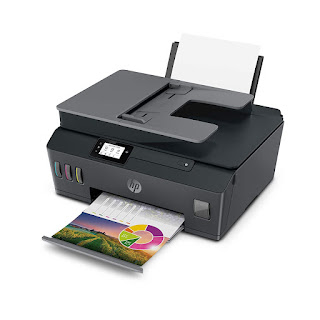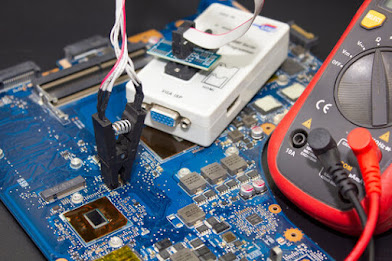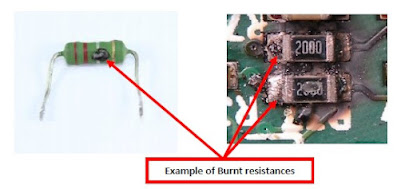Overheating – Acer Aspire E15, ASUS X555L, HP EliteBook 840 G3
Laptops have become essential for work, study, and entertainment, but one of the most frustrating problems users face is overheating. Whether you own an Acer Aspire E15, an ASUS X555L, or an HP EliteBook 840 G3, chances are you’ve experienced your laptop getting unusually hot, fans running loudly, or even sudden shutdowns due to high temperatures.
Overheating not only slows down performance but can also cause permanent damage to critical components like the CPU, GPU, or motherboard. In this in-depth guide, we’ll explore why these specific models often overheat, how to recognize the signs, and most importantly, how to fix and prevent overheating issues.
Why Do Laptops Overheat?
Overheating is a universal problem across laptops, but certain models are more prone to it due to their design and cooling system limitations. The main reasons include:
- Poor ventilation: Dust accumulation and blocked air vents prevent proper airflow.
- Weak thermal design: Some laptops have compact builds with limited cooling capacity.
- High workload: Heavy applications like gaming, video editing, or virtualization put extra pressure on CPU and GPU.
- Aging thermal paste: Old or dried thermal paste loses its ability to transfer heat effectively.
- Faulty fans: Worn-out or noisy fans can’t regulate temperature properly.
Overheating Symptoms in Each Model
Acer Aspire E15 Overheating Symptoms
- Fans constantly running at full speed.
- System slows down after extended use.
- Frequent blue screen errors caused by thermal throttling.
- Bottom panel gets extremely hot, uncomfortable for lap use.
ASUS X555L Overheating Symptoms
- Sudden shutdowns during gaming or video editing.
- Excessive fan noise, even when idle.
- Keyboard area feels unusually warm.
- Reduced battery life due to excessive heat.
HP EliteBook 840 G3 Overheating Symptoms
- Frequent CPU throttling (sluggish performance).
- System freezes during multitasking.
- Laptop becomes hot around the left hinge (where heatsink is located).
- Device shuts down unexpectedly when under heavy load.
Causes of Overheating in Acer Aspire E15, ASUS X555L, and HP EliteBook 840 G3
Acer Aspire E15
- Budget design with limited cooling system.
- Single fan struggling to cool both CPU and GPU.
- Dirt and lint clogging air vents.
ASUS X555L
- Thin build design restricts heat dissipation.
- No dedicated exhaust vents near GPU.
- Thermal paste wearing out over time.
HP EliteBook 840 G3
- Compact ultrabook chassis with poor airflow.
- Thin heatsink that cannot keep up with i5/i7 processors.
- BIOS-controlled fan speed not always aggressive enough.
Step-by-Step Fixes for Overheating
Now let’s break down practical fixes you can apply to reduce or eliminate overheating in these laptops.
1. Clean the Cooling System
- Power off the laptop and remove the back panel.
- Use compressed air to blow out dust from vents and fans.
- For heavy buildup, remove the fan and clean it thoroughly.
2. Replace Thermal Paste
- Remove heatsink from CPU and GPU.
- Clean off old thermal paste with isopropyl alcohol.
- Apply a thin, even layer of high-quality thermal paste (Arctic MX-4 or similar).
3. Improve Airflow
- Use a cooling pad to provide additional ventilation.
- Keep laptop elevated when in use.
- Never block side or bottom vents while using on bed or pillow.
4. Adjust Power Settings
- Switch to "Balanced" or "Power Saver" mode when not gaming.
- Limit maximum processor state to 80–90% in Windows power settings.
- Update BIOS to ensure optimized fan speed control.
5. Replace or Upgrade Cooling Components
- If fan is faulty, replace with OEM part.
- Upgrade heatsink assembly if compatible.
Model-Specific Fixes
Fixing Acer Aspire E15 Overheating
- Regularly clean dust from single cooling fan.
- Replace thermal paste every 2–3 years.
- Undervolt CPU using Intel XTU to reduce heat generation.
Fixing ASUS X555L Overheating
- Reapply thermal paste on both CPU and GPU.
- Install cooling pad for extra airflow.
- Consider BIOS updates to fix thermal management bugs.
Fixing HP EliteBook 840 G3 Overheating
- Clean vents around left hinge (common hotspot).
- Adjust BIOS fan settings for aggressive cooling.
- Replace thermal paste and check heatpipe condition.
Long-Term Prevention Tips
- Keep your laptop on hard, flat surfaces.
- Clean fans and vents every 6 months.
- Use cooling pads during heavy workloads.
- Replace thermal paste every 2–3 years.
- Limit gaming or rendering sessions to reduce continuous overheating.
Frequently Asked Questions (FAQ)
1. Why does my Acer Aspire E15 overheat so easily?
It has a basic single-fan cooling system, making it more prone to overheating under heavy loads.
2. Is ASUS X555L good for gaming if it overheats?
It can handle light gaming, but overheating issues limit its long-term gaming performance unless cooling modifications are applied.
3. Does HP EliteBook 840 G3 overheating damage the motherboard?
Yes, prolonged overheating can damage the motherboard, power circuits, and battery over time.
4. How do I monitor laptop temperatures?
Use software like HWMonitor, CoreTemp, or SpeedFan to track CPU and GPU temperatures.
5. What is a safe operating temperature?
Ideally, laptops should run between 40°C–70°C under normal load. Anything consistently above 85°C risks hardware damage.
Conclusion: Keep Your Laptop Cool and Reliable
Overheating in laptops like the Acer Aspire E15, ASUS X555L, and HP EliteBook 840 G3 is a widespread issue — but the good news is that it’s manageable. From simple cleaning and thermal paste replacement to adjusting power settings and using cooling pads, there are multiple ways to restore your laptop’s performance.
If your laptop still overheats after applying these solutions, it may be time to replace faulty cooling components or seek professional help. Don’t wait until overheating damages your device permanently — act early, and keep your system running efficiently.
Have you experienced overheating with your Acer, ASUS, or HP laptop? Share your tips and fixes in the comments — your experience might save someone else’s device!







Comments
Post a Comment